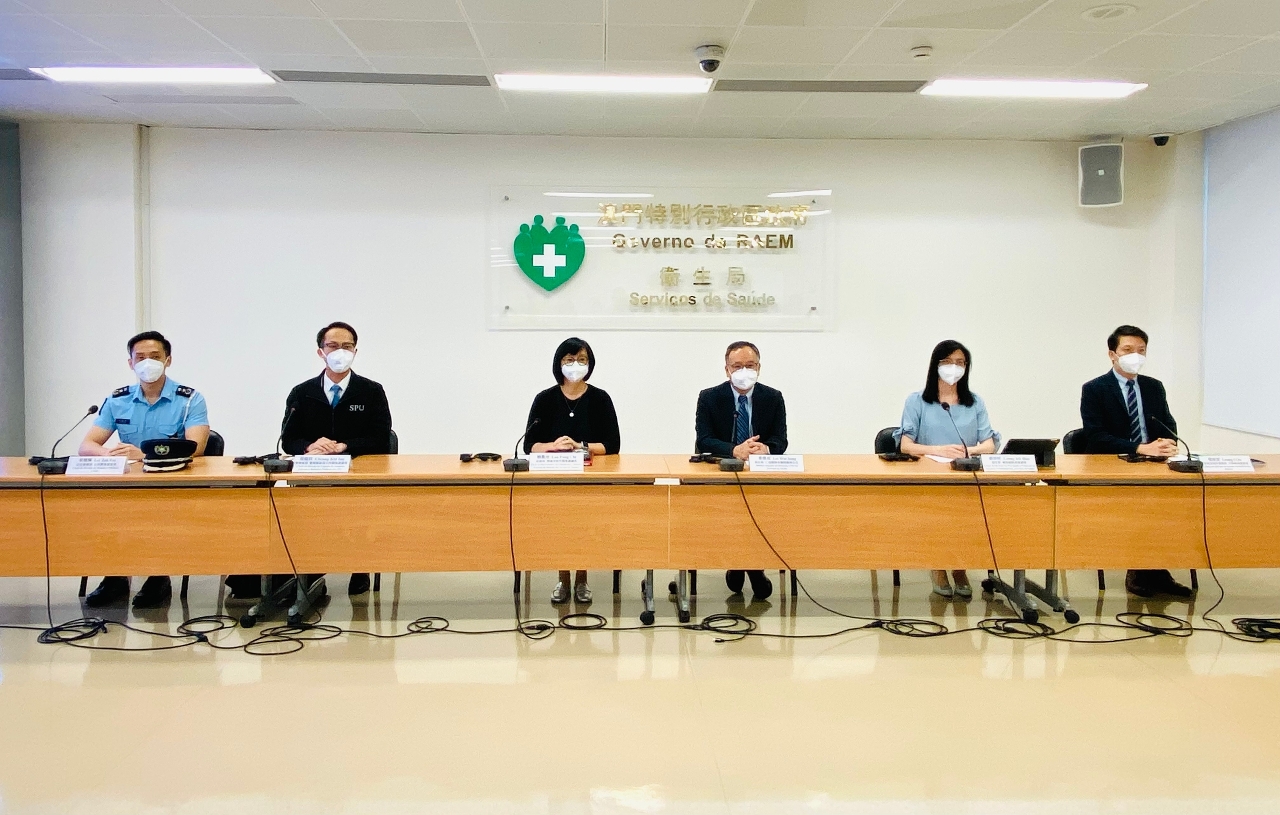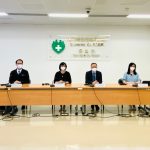 Press conference of the Novel Coronavirus Response and Coordination Centre
Press conference of the Novel Coronavirus Response and Coordination Centre
In the daily press conference of the Novel Coronavirus Response and Coordination Centre on 21 July, Dr. Leong Iek Hou, the Head of Communicable Disease Prevention and Control Division of the Centre for Disease Prevention and Control of the Health Bureau, announced the inclusion of additional key areas and key groups for the targeted nucleic acid testing drive.
According to Dr. Leong, analysis shows that most of the recent community cases were found between Rua de S. José and Rua da Praia do Manduco, as well as between Jardim de Luís de Camões and Bairro San Kio. To facilitate early detection and early treatment of any infected persons in the community, the above areas have been listed as key areas. As such, all individuals living or working in these areas, as well as those who have stayed there for more than 30 minutes since 18 July, are required to undergo daily nucleic acid test for three consecutive days starting tomorrow (22 July), i.e. from 22 July (Friday) to 24 July (Sunday). More details can be found in another press release: https://www.gcs.gov.mo/detail/en/N22GU8ujXS?3.
In addition, since a high proportion of infected persons are Filipinos, individuals with Philippine nationality (including Macao residents with Philippine passport) are included in the key groups and will be subject to daily nucleic acid testing from tomorrow (22 July). They can book the test via the following link: https://eservice.ssm.gov.mo/allpeoplernatestbook/Booking?lang=en.
Considering that the risk of infection of the aforesaid populations is relatively high, all individuals in the said population groups (including infants and children born after 1 July 2019, as well as the aged and the disabled who have difficulty in walking or who need care from others) have to be tested without exemption. The authorities will send a text message to the individuals concerned. Those who fail to get tested as required will have their health code turn yellow on the next day, on which they must receive the test to restore to a green health code, or else their health code will turn red on the day after. (In other words, those who skip the nucleic acid test for two consecutive days will be given a red health code.)
With regard to the NAT arrangements during 24 to 29 July for other key groups (individuals engaged in cleaning, security, property management or F&B services; couriers of food delivery services; public transport drivers; stay-out domestic helpers) and the working populations, a separate announcement will be made in due course.
Dr. Leong emphasised that anyone who wishes to take a nucleic acid test to find out their infection status is welcome to book one.
The doctor added that depending on the risk levels in various districts in Macao, an evaluation will be carried out next week as to whether to classify more areas as key areas for nucleic acid testing. She appealed to the public to verify and fill in their residential address correctly in the Macao Health Code. If one is not sure whether the address registered with the Identification Services Bureau is up-to-date, it is advised to re-register the address in the Macao Health Code, to avoid possible inconvenience in the event that the incorrect or outdated address provided is classified as a key area or subject to lockdown measures.
She also introduced the NAT arrangements for people who need to leave home for work during the “consolidation period” (i.e. 24 to 29 July). The measure covers all individuals who need to leave home for work between 20 July and 29 July, regardless of for how long and what kind of work they perform. They are required to undergo a nucleic acid test every other day, starting from 24 July or the first day on which they leave home for work, until 29 July. This measure is enforced under the supervision of the regulatory entities, institutions and employers.
Meanwhile, members of the public are reminded to self-administer a rapid antigen test and upload the result to the online platform every day during the “consolidation period”, including infants and children born after 1 July 2019, as well as the aged and the disabled who have difficulty in walking or who need care from others. Those who fail to do so will be assigned a yellow health code.
Companies or establishments that are going to resume operation during the “consolidation period” must comply with relevant anti-epidemic measures, according to Dr. Leong. Guidelines on the measures have been uploaded to the Special Webpage Against Epidemics (https://www.ssm.gov.mo/docs/24623/24623_1bdd025d17d741d6bb623e0402b88df3_000_.pdf).
Dr. Lei Wai Seng, Clinical Director of Conde de São Januário General Hospital, announced one additional death case on 21 July. The deceased was a 93-year-old male who lived in Edifício San Mei On and was diagnosed on 9 July. The man suffered chronic heart disease and chronic pulmonary disease, and he had not received any COVID-19 vaccines.
Dr. Lei said that according to the statistical data of the previous wave of epidemic in Hong Kong, there were more than 1,000 deaths recorded; relevant data showed that the death rate among unvaccinated people is almost 30 times higher than that of vaccinated people. Hence, he appealed to senior citizens with chronic diseases to get vaccinated. Although the current epidemic situation remains serious, the vaccination centre located at Macao Forum is operating as usual to provide vaccination services to those in need.


